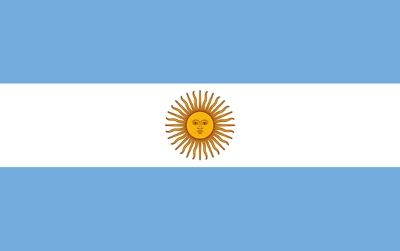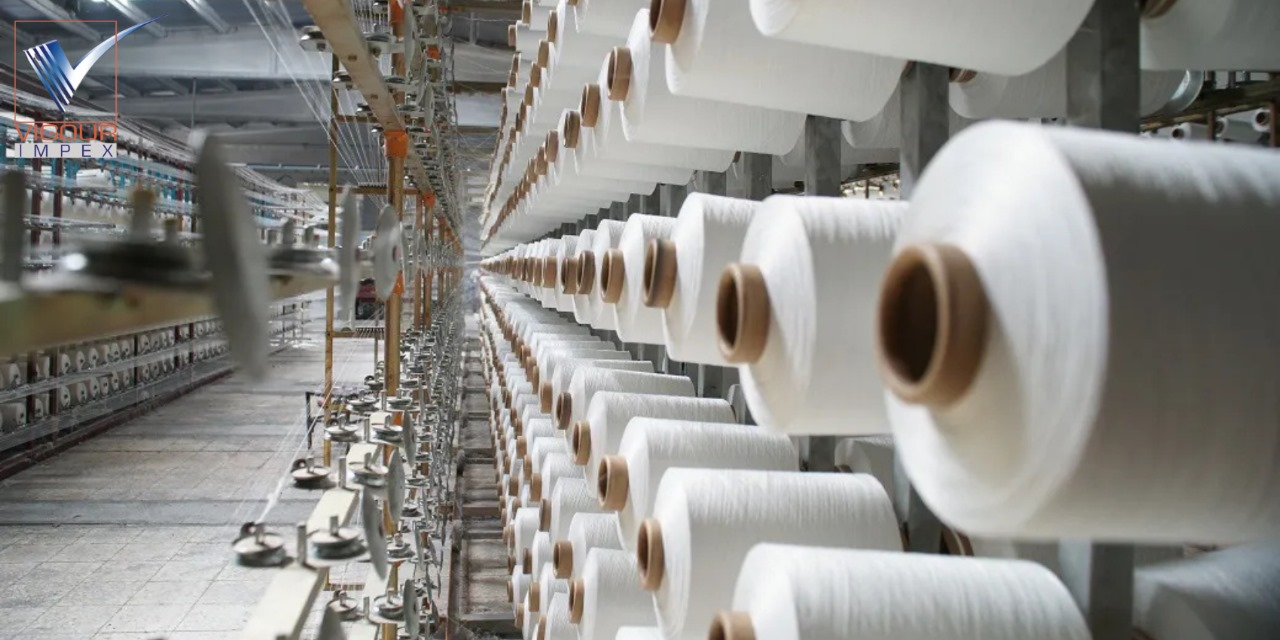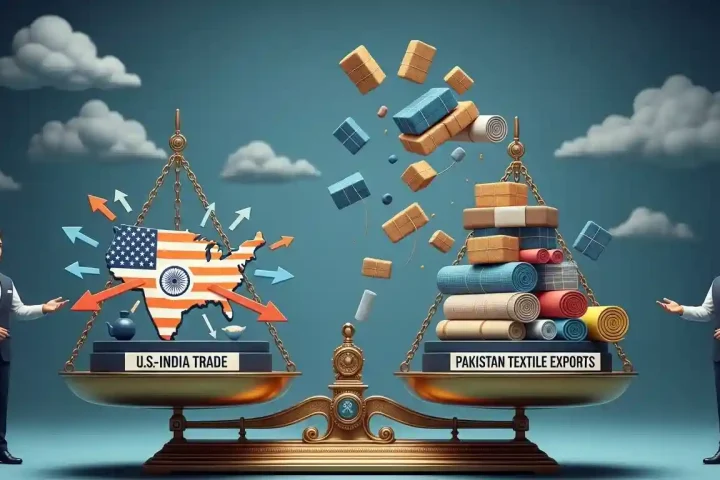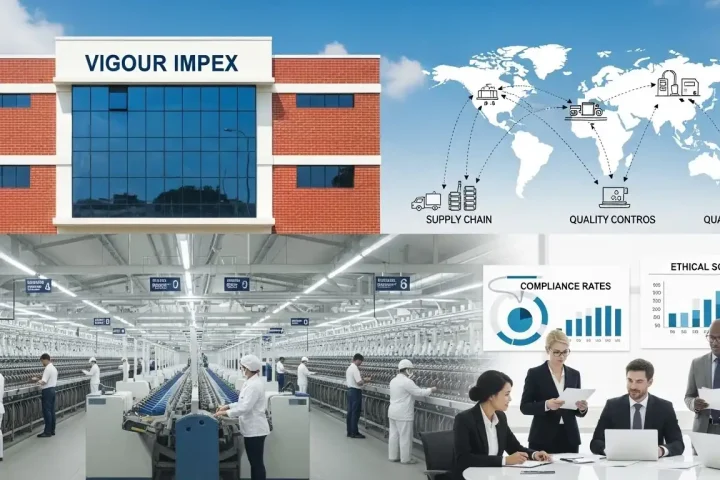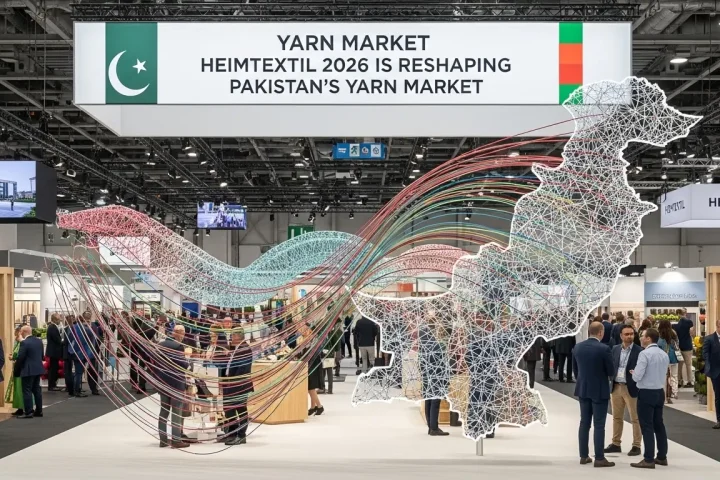The global fashion landscape is shifting, and Pakistan cotton industry is becoming the go-to destination for international brands looking for quality, sustainability, and value. From Patagonia to Stella McCartney, major fashion players are turning their attention to Pakistani textiles like never before.
But what’s driving this surge in demand? Why are brands choosing Pakistan over traditional manufacturing hubs? Let’s explore the compelling reasons behind this textile revolution.
Why Pakistan Cotton Industry Stands Out in 2025
Pakistan has quietly positioned itself as one of the world’s most reliable cotton textile suppliers, and 2025 is proving to be a breakthrough year. The country ranks as the fourth-largest cotton producer globally and holds the third-largest spinning capacity in Asia, making it a powerhouse in the textile supply chain.
The Numbers Tell the Story
Pakistan’s textile sector isn’t just surviving, it’s thriving. The home textile market alone is expected to reach $1.15 billion in 2025, with projections to grow at a 7.45% annual rate through 2030. This growth reflects increasing confidence from international buyers who recognize Pakistan’s manufacturing excellence.
The industry comprises:
- 1,221 ginning units processing raw cotton
- 442 spinning units creating high-quality yarn
- Hundreds of weaving and finishing facilities
- A skilled workforce of over 2 million people
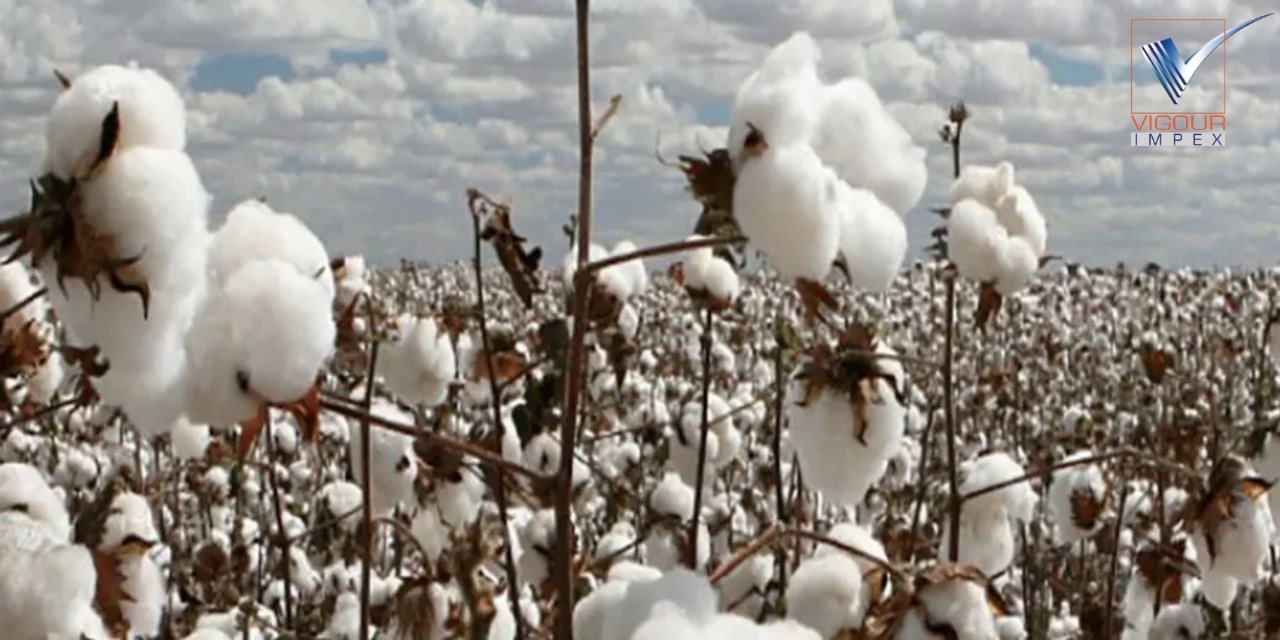
Quality That Matches Global Standards
When it comes to cotton fabric quality, Pakistan delivers consistently. The country’s textile manufacturers have invested heavily in modern machinery, quality control systems, and worker training programs. This commitment to excellence has earned Pakistani textiles a reputation for durability and finish that rivals any producer worldwide.
Better Cotton Initiative Leadership
Pakistan has emerged as the third-largest producer of Better Cotton globally. This certification matters to brands because it guarantees sustainable farming practices, ethical labor conditions, and reduced environmental impact, all critical factors for today’s conscious consumers.
Major textile companies like Nishat Mills, Gul Ahmed, and Sapphire Textile Mills have adopted sustainable production methods, making Pakistan an attractive sourcing destination for brands committed to environmental responsibility.
Competitive Pricing Without Compromising Quality
One of the biggest advantages Pakistan offers is cost-effective textile manufacturing. While maintaining international quality standards, Pakistani manufacturers provide pricing that’s more competitive than India and quality that exceeds Bangladesh.
This sweet spot of affordability and excellence makes Pakistan particularly attractive for brands managing tight margins while refusing to compromise on product quality. Labour costs represent only 5-8% of total production costs, allowing manufacturers to keep prices competitive while investing in better facilities and worker welfare.
The Sustainability Factor Driving Brand Decisions
Sustainability isn’t just a buzzword anymore, it’s a requirement. Global brands face increasing pressure from consumers, investors, and regulators to clean up their supply chains. Pakistan’s textile industry has responded with impressive initiatives:
Green Manufacturing Practices
Leading Pakistani textile manufacturers are implementing:
- Renewable energy solutions in production facilities
- Water conservation systems reducing consumption by up to 40%
- Eco-friendly dye processes minimizing chemical waste
- Carbon footprint reduction programs across the supply chain
Companies like Artistic Milliners have invested heavily in renewable energy, while Interloop Limited has implemented comprehensive sustainable manufacturing practices. These efforts resonate with brands like Patagonia and Stella McCartney, who are actively sourcing from Pakistan for their sustainable collections.
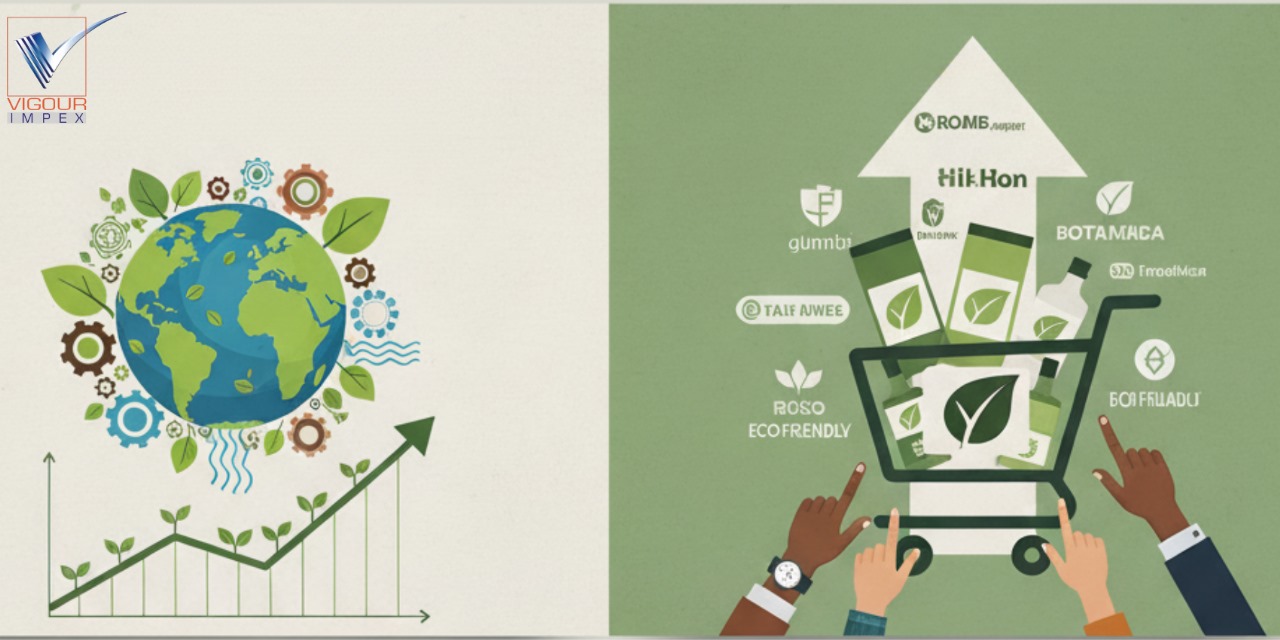
Strategic Location and Trade Advantages
Pakistan’s geographic position provides significant logistics advantages for textile exports. The country offers:
- Easy access to Middle Eastern, European, and North American markets
- Established shipping routes through Karachi and Port Qasim
- Competitive freight costs compared to East Asian alternatives
- Trade agreements providing preferential access to key markets
With global brands diversifying their sourcing strategies in 2025 to reduce dependency on single countries, Pakistan’s strategic position makes it an ideal alternative manufacturing hub.
From Raw Cotton to Finished Products: A Complete Value Chain
Unlike some competitors who specialize in specific manufacturing stages, Pakistan offers a complete textile value chain. Brands can source everything from raw cotton to finished garments from a single geographic location, simplifying logistics and reducing lead times.
This vertical integration includes:
- Cotton farming and ginning
- Yarn spinning and dyeing
- Fabric weaving and knitting
- Garment manufacturing
- Home textile production (bedding, towels, curtains)
- Quality assurance and testing
For brands, this means fewer suppliers to manage, better quality control, and faster time-to-market, all critical competitive advantages in today’s fast-paced fashion industry.
Innovation and Product Development
Pakistani textile manufacturers aren’t just following trends, they’re helping create them. Investment in research and development has led to:
Advanced Fabric Technologies
- Moisture-wicking performance fabrics for activewear
- Organic and sustainable cotton blends
- Technical textiles for specialized applications
- Innovative finishes improve durability and comfort
Buying houses like Vigour Impex work directly with manufacturers to develop market-ready textile designs using sustainable materials, helping brands bring innovative products to market faster.
The China Alternative: Geopolitical Considerations
As global trade dynamics shift, many brands are actively seeking alternatives to Chinese manufacturing. Rising costs in China, combined with trade tensions and supply chain disruptions experienced during recent years, have prompted brands to diversify their sourcing.
Pakistan presents an attractive alternative because it offers:
- Political stability focused on economic growth
- Government support for textile exports
- No trade conflicts with major Western markets
- Transparent business practices aligned with international standards
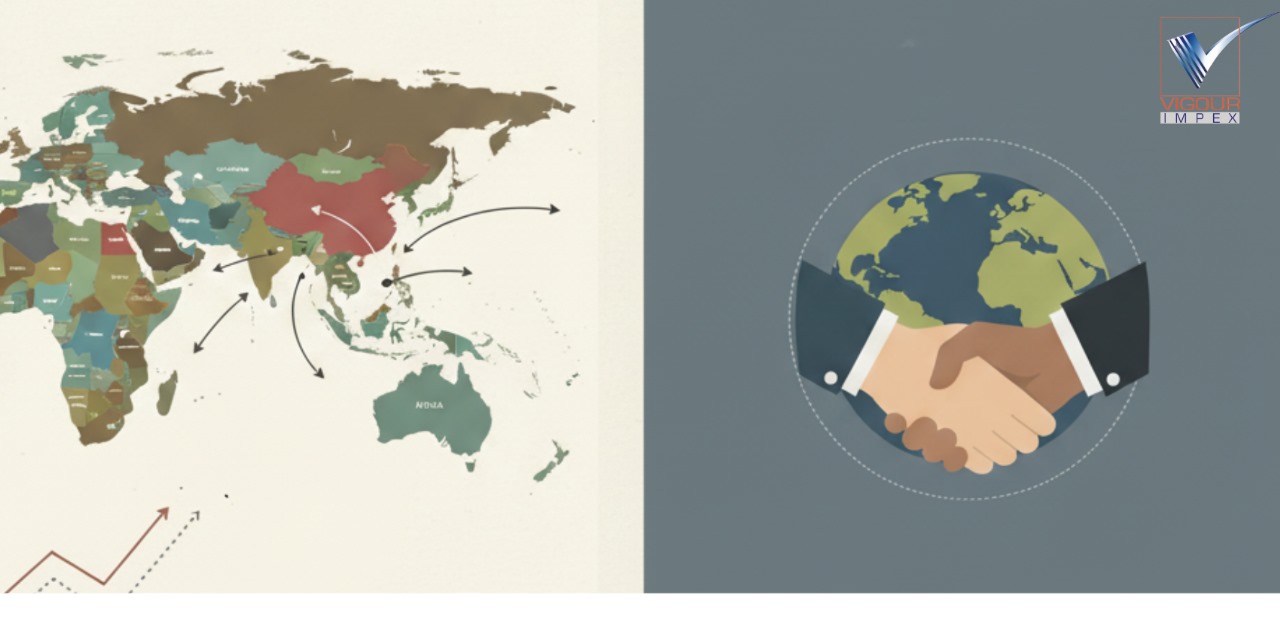
Quality Control and Compliance Standards
International brands demand rigorous quality assurance systems, and Pakistani manufacturers have responded by obtaining international certifications:
- ISO 9001 quality management systems
- OEKO-TEX Standard 100 for textile safety
- GOTS (Global Organic Textile Standard) certification
- WRAP (Worldwide Responsible Accredited Production) compliance
- Better Cotton Initiative membership
These certifications aren’t just paperwork; they represent real investments in systems, training, and processes that ensure consistent quality and ethical practices.
Skilled Workforce and Manufacturing Expertise
Pakistan’s textile industry benefits from decades of accumulated expertise. Multi-generational textile families have passed down knowledge and skills, creating a workforce that understands fabric quality intuitively.
Training and Development
Modern manufacturers invest heavily in worker training, covering:
- Advanced machinery operation
- Quality control techniques
- Sustainable production methods
- Safety and compliance standards
This skilled workforce can handle complex orders, maintain tight tolerances, and troubleshoot issues quickly, capabilities that matter enormously when managing large-scale production runs.
Digital Transformation in Pakistani Textiles
The industry is embracing technology to improve efficiency and transparency. Many manufacturers now offer:
- ERP systems for order tracking and production management
- Digital sampling reduces development time
- Automated quality control using AI and machine vision
- Blockchain-based supply chain transparency
- Virtual showrooms enabling remote sourcing
This digital transformation makes it easier for international brands to work with Pakistani suppliers, even from thousands of miles away. Companies offering end-to-end order management help brands streamline their sourcing processes significantly.
Challenges and How the Industry Is Responding
While Pakistan cotton industry offers tremendous advantages, it faces challenges that the industry is actively addressing:
Energy Infrastructure
Recent energy crises affected production capacity, but the government and private sector are investing in:
- Independent power generation facilities
- Solar energy installations
- More stable grid infrastructure
Cotton Production Fluctuations
Weather events have impacted cotton yields in recent years. The industry is responding with:
- Improved seed varieties
- Better irrigation systems
- Crop diversification strategies
- Enhanced ginning efficiency
Competition from Regional Producers
Bangladesh and Vietnam remain competitive alternatives. Pakistan differentiates itself through:
- Superior quality offerings
- More comprehensive product ranges
- Better sustainability credentials
- Stronger compliance records
The Future: What’s Next for Pakistan’s Cotton Industry
Looking ahead, several trends will shape Pakistan’s textile industry:
Increased Focus on Premium Segments
Rather than competing solely on price, Pakistani manufacturers are moving toward high-value textile products. This includes:
- Designer collaborations
- Technical performance fabrics
- Luxury home textiles
- Sustainable fashion collections
Expansion into Non-Traditional Markets
While Europe and North America remain key markets, Pakistani exporters are exploring:
- Canadian fashion markets (following recent trade showcase success)
- Latin American buyers
- Australian and New Zealand retail chains
- Gulf states growing fashion sectors
Technology-Driven Manufacturing
Investment in automation and smart manufacturing will continue, with facilities adopting:
- Robotics for repetitive tasks
- AI-powered quality control
- IoT sensors for efficiency monitoring
- Data analytics for production optimization

How International Brands Can Start Sourcing from Pakistan
For brands interested in Pakistani textiles, the process is straightforward:
Working with Sourcing Partners
Textile buying houses like Vigour Impex act as bridges between international brands and Pakistani manufacturers. They provide:
- Supplier Vetting – Connecting you with certified, reliable manufacturers
- Product Development – Creating samples and specifications
- Quality Assurance – Inspecting products throughout production
- Logistics Management – Handling shipping and documentation
- After-Sales Support – Resolving any issues post-delivery
Building Long-Term Partnerships
Successful sourcing from Pakistan requires:
- Clear communication of quality standards and expectations
- Realistic lead times accounting for production and shipping
- Fair payment terms that work for both parties
- Regular visits to build relationships with suppliers
- Collaborative approach to problem-solving
7 Key Trends in Pakistan’s Cotton Industry for 2025
- Increased Global Demand for Home Textiles: Comfort-focused consumer trends are fueling home textile sourcing from Pakistan.
- Supply Chain Integration: Manufacturers offer yarn-to-garment capabilities under one roof, enhancing quality control.
- Adoption of Advanced Technology: Investments in high-tech equipment boost production efficiency.
- Growing Emphasis on Traceability: Use of blockchain and the US Cotton Trust Protocol offer transparent supply chains.
- Environmental Concerns: Shift toward sustainable cotton farming practices to appeal to eco-conscious brands.
- Government Support & Challenges: Efforts to revive cotton cultivation face obstacles like input costs but remain crucial.
- Rising Cotton Exports: Despite weather setbacks, Pakistan is reinforcing its export position with strategic policies.
5 Reasons Global Brands Are Investing in Pakistan’s Cotton
- Reliable Quality Cotton Supply: Pakistan’s consistent cotton fiber quality appeals to global textile manufacturers.
- Cost-Efficiency without Compromise: Competitive pricing with premium standards gives brands an edge.
- Sustainability and Ethical Manufacturing: Strong adherence to labor and environmental standards builds brand trust.
- Strategic Geographic Location: Easy access to major textile markets in Asia, Europe, and the US.
- Strong Industry Infrastructure: Established ginning factories, mills, and advanced textile units support large order volumes.
How to Leverage Pakistan’s Cotton Industry in 2025
To make the most of Pakistan’s cotton advantages:
- Partner with Established Sourcing Companies: Work with trusted exporters like
- Vigour Impex
- who have decades of market experience and strong supplier networks.
- Prioritize Traceability: Request certifications like the US Cotton Trust Protocol to ensure sustainable and verified sourcing.
- Explore Local Market Reports: Stay updated with Pakistan Cotton Ginners Association (PCGA) monthly reports for crop and price insights.
- Negotiate Quality and Pricing: Use market intelligence to secure competitive deals without sacrificing quality.
- Adapt to Seasonal Trends: Align purchasing plans with Pakistan’s sowing and harvest cycles for best availability.
Guide to Sourcing Cotton from Pakistan for Global Brands
- Identify Reliable Suppliers: Choose suppliers with ISO certifications and proven export track records, such as Vigour Impex.
- Audit Production Facilities: Verify factory compliance with international labor and environmental standards.
- Secure Transparent Contracts: Ensure terms include traceability from cotton farms to finished goods.
- Coordinate Logistics Early: Plan for seasonal peak demand and customs clearance.
- Leverage Local Expertise: Engage local agents or sourcing companies familiar with Pakistan’s cotton market complexities.
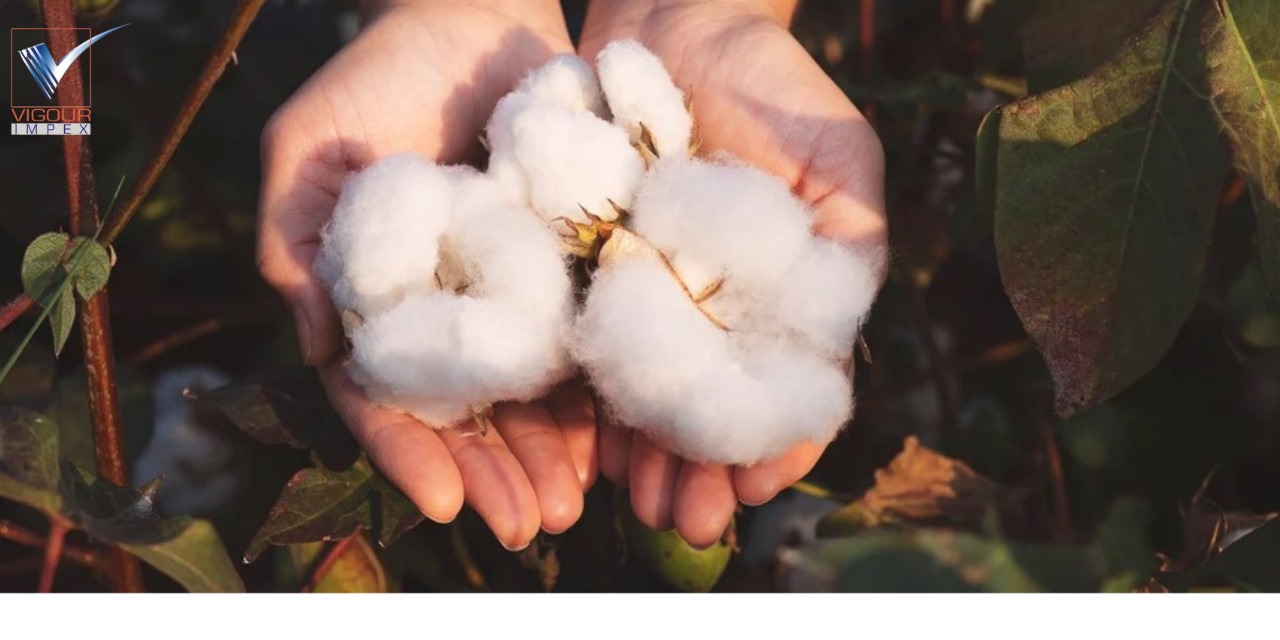
For detailed insights on sourcing strategies and challenges, visit the
Pakistan Textile and Apparel Policy 2025
.Why Are Global Brands Flocking to Pakistan’s Cotton Market?
The surge in interest is driven by:
- Competitive Pricing: Domestic cotton remains cheaper than many alternatives despite some production declines.
- Quality Improvement: Despite a dip in yields, cotton quality is steadily improving through better agricultural practices.
- Trade Policy Shifts: Removal of excessive sales tax on domestic cotton and yarn is encouraging local purchase.
- Diversification Needs: Brands seek to diversify away from traditional sourcing countries due to geopolitical risks.
- Sustainability Push: Pakistan’s adoption of sustainable cotton farming practices aligns with global CSR goals
FAQs
What makes Pakistani cotton different from other countries?
Pakistani cotton, particularly Pima and long-staple varieties, offers excellent fiber strength, length, and consistency. Combined with skilled processing and competitive pricing, Pakistani cotton provides outstanding value for textile manufacturing.
Is Pakistan’s textile industry sustainable?
Yes, Pakistan is making significant strides in sustainability. As the third-largest producer of Better Cotton globally, many Pakistani manufacturers have adopted eco-friendly practices, renewable energy, water conservation systems, and ethical labor standards. Major brands like Patagonia and Stella McCartney actively source from Pakistan specifically for sustainable collections.
How does Pakistan compare to Bangladesh for textile manufacturing?
Pakistan generally offers higher quality fabrics and more diverse product ranges than Bangladesh, though Bangladesh remains competitive on basic garment pricing. Pakistan excels in home textiles, premium fabrics, and technical textiles where quality matters most.
What products can I source from Pakistan’s textile industry?
Pakistan offers a complete textile value chain including raw cotton, yarn, woven and knitted fabrics, home textiles (bedding, towels, curtains), garments (both casual and formal wear), and technical textiles. This makes it possible to source multiple product categories from one country.
How long does it take to receive orders from Pakistan?
Typical lead times range from 60-90 days depending on product complexity, order size, and shipping method. Working with experienced buying houses can help optimize timelines through better production planning and logistics management.
Are Pakistani textile manufacturers compliant with international standards?
Yes, many Pakistani manufacturers hold international certifications including ISO 9001, OEKO-TEX, GOTS, WRAP, and Better Cotton Initiative membership. These certifications ensure quality management, chemical safety, organic standards, and ethical production practices.
What is the minimum order quantity for Pakistani manufacturers?
MOQs vary by product and manufacturer. For standard items, minimums might start at 1,000-5,000 units, while custom products may require higher volumes. Working with buying houses can sometimes help consolidate smaller orders.
Is Pakistan’s cotton production increasing or decreasing in 2025?
Production has faced challenges with some area decline, but quality and sustainability measures are improving, making it attractive for premium sourcing.
Which regions are key cotton producers in Pakistan?
Punjab leads cotton production, with Sindh and Balochistan also contributing. Punjab has shown better crop health this year.
How does sourcing from Pakistan benefit global brands?
Benefits include cost savings, quality assurance, ethical sourcing, and supply chain transparency.
Can small and medium brands source cotton from Pakistan?
Yes, Pakistan offers flexible production scales, catering to both boutique and mass market buyers
Take the Next Step in Your Sourcing Journey
Pakistan’s cotton industry offers a compelling combination of quality, sustainability, competitive pricing, and reliability that’s attracting global brands in 2025. Whether you’re a established retailer looking to diversify your supply chain or an emerging brand seeking a manufacturing partner, Pakistani textiles deserve serious consideration.
The industry’s commitment to sustainability, investment in technology, and focus on quality improvement position it perfectly for brands wanting to meet modern consumer expectations while managing costs effectively.
Ready to explore Pakistani textile manufacturing for your brand? Contact Vigour Impex to connect with certified suppliers, develop custom products, and experience the difference that three decades of textile expertise can make for your business.
With the right sourcing partner, you can access Pakistan’s textile excellence while focusing on what you do best, building your brand and delighting your customers.
About Vigour Impex: Since 1992, Vigour Impex has been connecting international brands with Pakistan’s finest textile manufacturers. With expertise across yarn, fabric, home textiles, and garments, we provide end-to-end supply chain solutions that ensure quality, reliability, and timely delivery. Our ISO-certified systems and sustainable practices make us the trusted partner for brands seeking excellence in Pakistani textiles.


